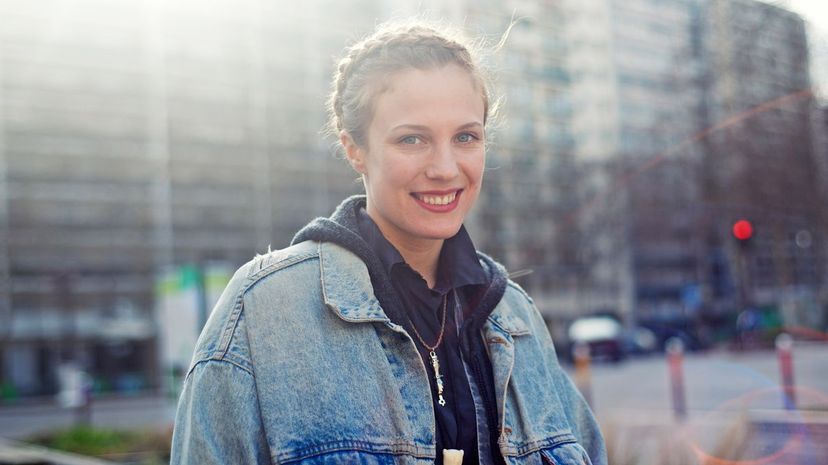
About This Quiz
Blank stares, the "I don't know what you're saying" head nod, delayed reactions because you're translating everything mentally ... these are the hallmarks of talking to people in another language. According to a study from the University of Chicago, people make more rational decisions when they think in a foreign language, because the emotional connection with your mother tongue can fog logical reasoning. This is interesting considering that learning another language sometimes feels so irrational.
But if you're here, it means you're a trouper: You're ready to set aside your inhibitions and take on the French language, full stop. Google Translate won't be your best friend anymore, and you won't spend countless hours trying to remember if it's un famille or une famille. You'll serenely glide through nouns, verbs, adverbs and adjectives that will test and even improve your skills. And in the end, you'll reap the benefits! Research from the University of Edinburgh found that bilingual people tend to outperform their monolingual counterparts on attention tests. Another study found that learning another language, even in late adulthood, improves general intelligence and reading skills. If you want to prove that the "advanced French proficiency" on your resume is actually true, you've come to the right place. Allons-y!
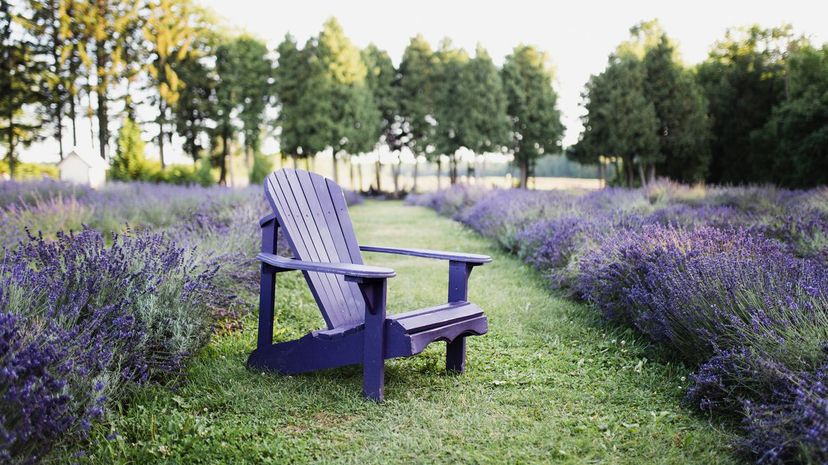
Both "chair" and "chaise" start with "ch," who would've guessed? "Lit" means "book," who would've double guessed? "Tapis" is a rug or carpet, and "porte" means "door" — not an ideal place to sit.
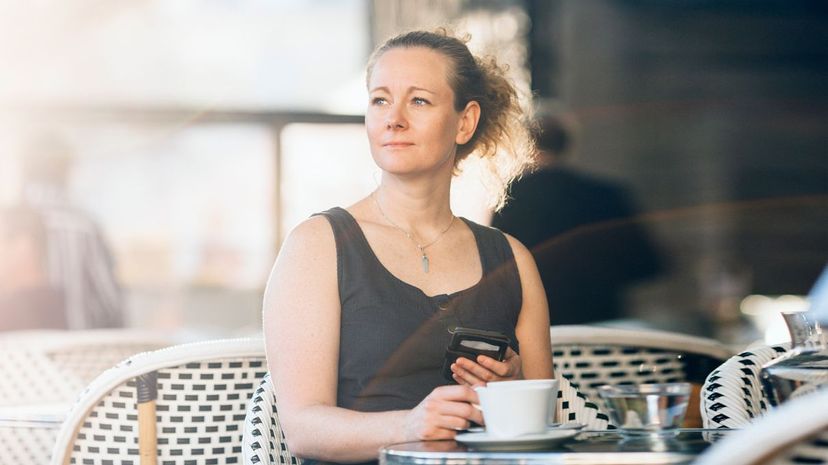
You can easily remember this word by thinking that a laptop is very portable. In fact, the official French term is "ordinateur portable," with "ordinateur" meaning "computer" and "portable" referring to its mobility.

This is a classic "faux ami" (otherwise known as "false friend.") These are French words that look like English ones, leading you to wrongly assume that they share the same definition.
Advertisement

"Marcher" is the opposite of running, meaning "to walk." "Aimer" and "manger" are unrelated to physical activity, with the former being "to like" and the latter signifying "to eat."

If you wanted to buy raisins, you'd purchase "raisins secs," meaning "dried grapes," which actually makes a lot of sense. "Champignons" are mushrooms and "pommes" are apples. Plot twist, "grapés" isn't a word.
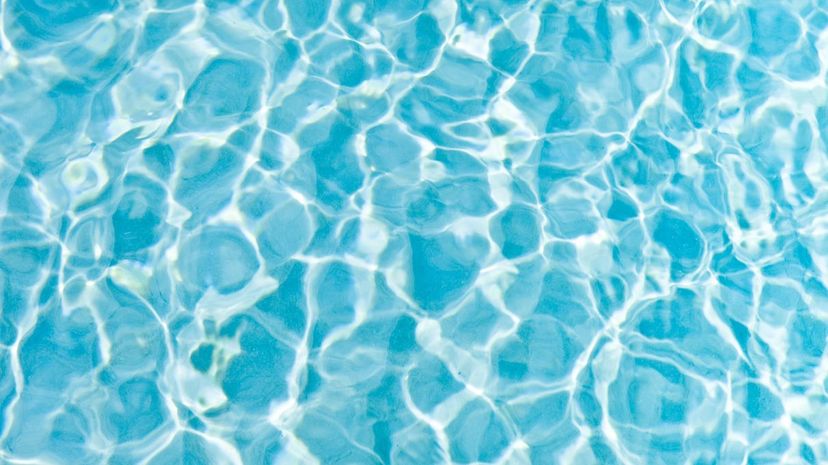
Who doesn't love a good belly flop? "Je veux" means "I want," while "sauter" is the verb for "to jump." "Piscine" means "pool," similar to the Spanish "piscina." If you're wondering what the word is for "to swim," it's "nager."
Advertisement
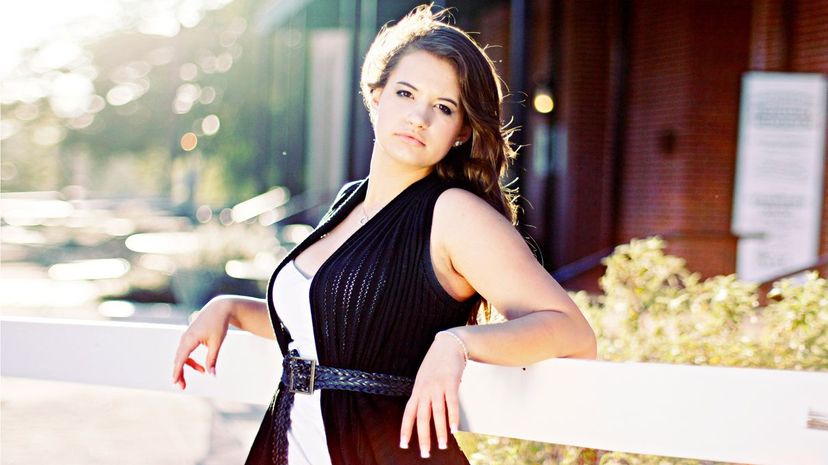
"Laid" is the opposite of "pretty," meaning "ugly." "Haut" and "court" are also opposites, with the former meaning "tall" and the latter being "short." And an "e" to the end of these words if they describe a female noun.
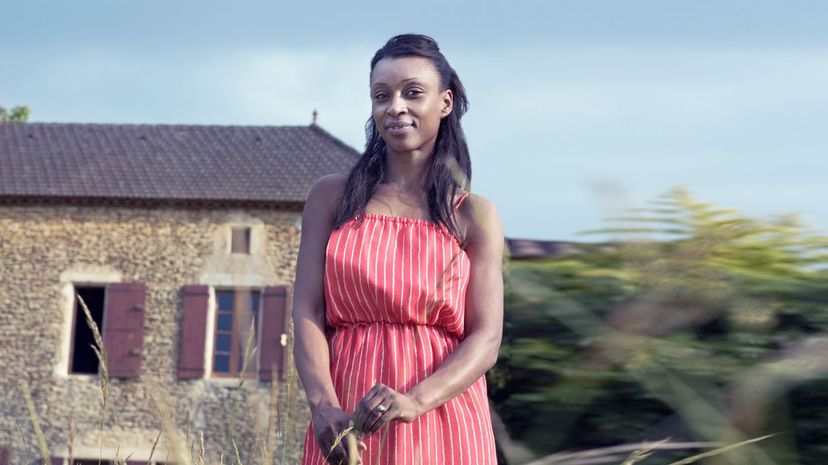
"La cuisine" is where all the magic happens! The food magic, that is. Almost everyone's favorite place, the verb for "to cook" is the same as the French word for the kitchen. The person cooking is "le cuisinier."

French adverbs often end in "ment," making them easy to identify among other types of words. The adjectival counterpart of "lentement" is "lent," but you certainly won't be slow at French once this quiz is over!
Advertisement
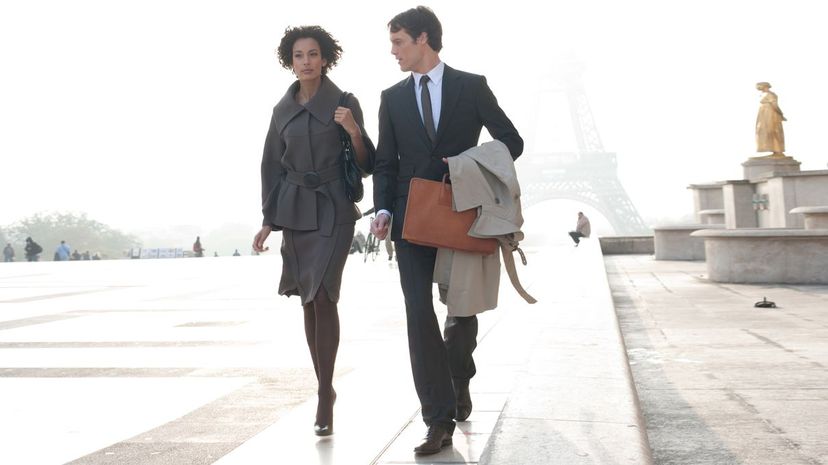
"Appeler" is the verb for "to call," but it can also be used when requesting someone's name, such as when saying, "Comment tu t'appelles?" (the literal translation is, "What do you call yourself?")

All these words are related to sleep: an "oreiller" is a pillow, a "lit" is a bed and "nuit" is night. For anyone who knows what "fatigued" means, it's no surprise that "fatigué" denotes tiredness.

A good way of remembering this is to keep in mind that soup is often eaten at dinner. You can also say "dîner," but it's sometimes used to refer to lunch, so beware of possible confusion.
Advertisement

"Méchant" is the word for "mean." You can remember this by noting that both words start with "m." "Gentil" is a basic way of saying "nice," while "chaleureux" denotes warmth. "Sympathique" is good for agreeableness or pleasantness.

"Main" isn't an option, but it's what you use to play the game — it's your hand. "Papier" is a rock ... just kidding, it's actually paper. The word for "rock" is "roche" and, you guessed it, "ciseaux" are scissors.
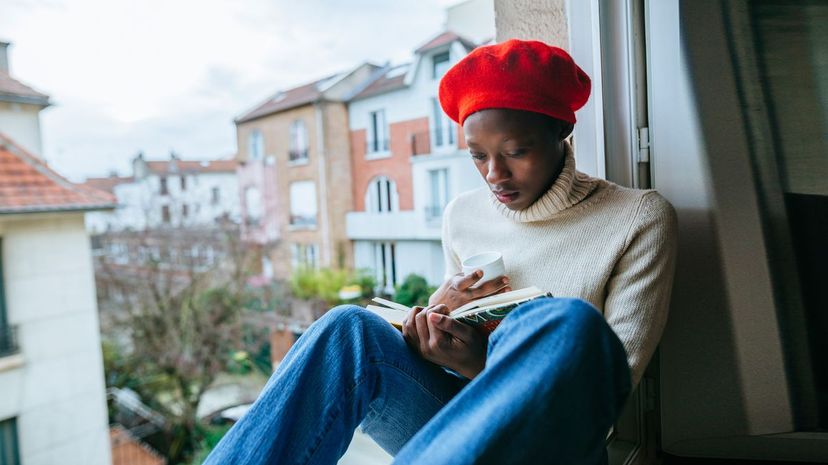
Reading before you "dormir" — or go to sleep — is a good idea, but don't do it as you "conduire" since driving and reading don't mix. We hope you "apprendre" — or learn — a lot from this quiz.
Advertisement

A ''verre'' is a glass, such as one that you would use to drink water. "Bouteille" is a bottle and, despite looking like "lentils," "lentilles" actually refers to glasses lenses. Lastly, you're not seeing double, an "optométriste" is, in fact, an optometrist.
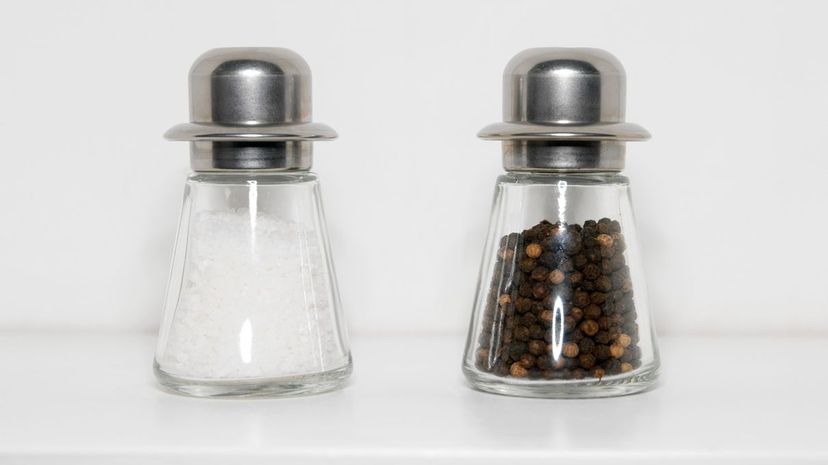
So many meatloafs, so little flavor. "Sale" is actually "dirty," hopefully not a word that'd be needed to describe a meatloaf. "Poivron" refers to bell peppers and not the seasoning.
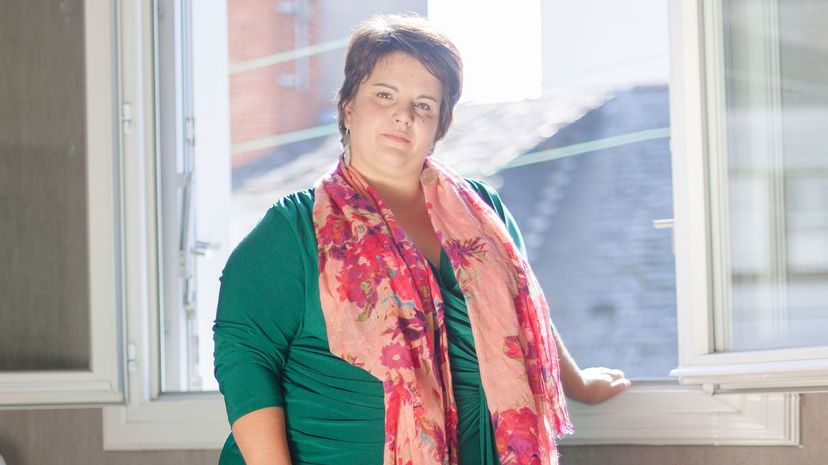
While the idea of riding a donkey seems lovely, a boat is your friend's transportation of choice. Had they said "un âne," well, that would be a different story. "Un avion" is a plane and "un canoë" is, you guessed it, a canoe.
Advertisement

You can remember "l'hiver," which means "winter," by noting that you s"hiver" when it's cold. "Printemps," just like the Spanish "primavera," refers to spring. And, surprise, surprise, "l'automne" is autumn.
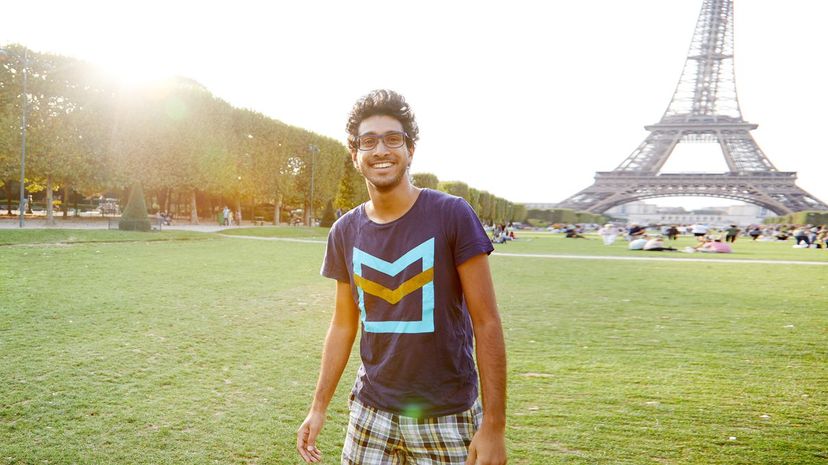
"Souvent" is one notch more intense than "rarement" — meaning "rarely" — but not quite as frequent as "toujours," which means "always." If he had said he never goes on walks, he would've used "jamais."

''Sun'' starts with "S," and so does ''soleil.'' If there was any ''pluie,'' we'd hope you'd bring an umbrella. Pack some snow boots if the forecast calls for ''neige'' and just stay home altogether if there's ''grêle'' — hail hurts!
Advertisement
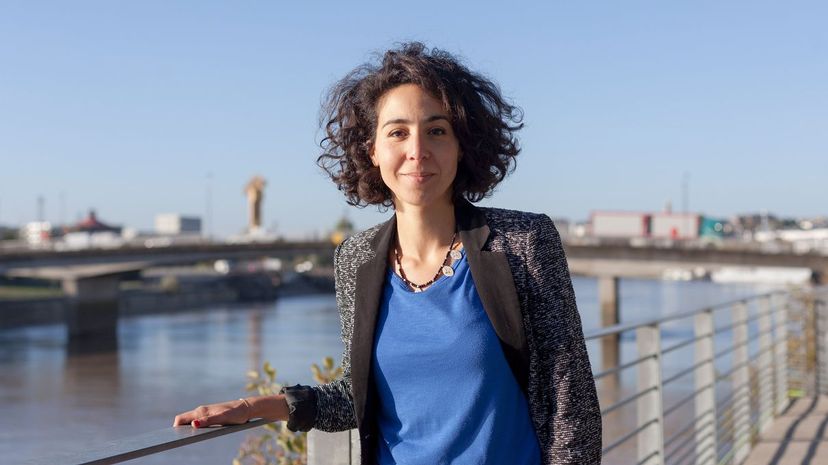
''Heureux'' and ''heureuse'' both denote happiness, but are spelled differently because they're adjectives and, hence, the former is masculine and the latter is feminine. ''Gai'' is a way of saying ''jolly'' or ''cheerful.''
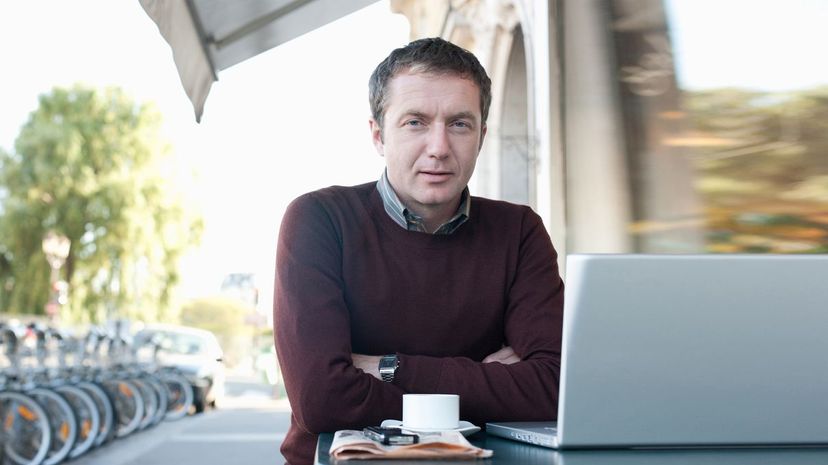
You can remember this by thinking that it's common for people to ''drape'' the flag around themselves during times of celebration. As with other nouns ending in ''eau,'' add an X at the end to make this word plural.
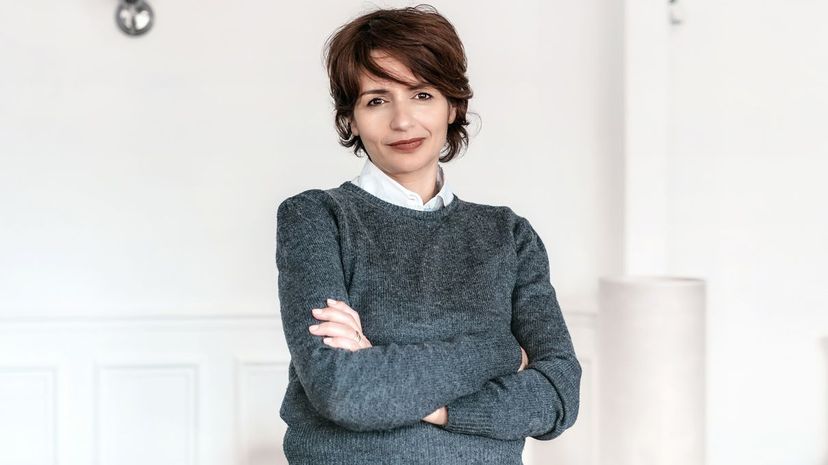
It'd be a ''mensonge'' to say this one wasn't a curve ball. A ''mensonge'' is a lie — the others mean ''pleasant,'' ''scary'' and ''annoying,'' respectively. A liar is a ''menteur'' and ''to lie'' is ''mentir.''
Advertisement
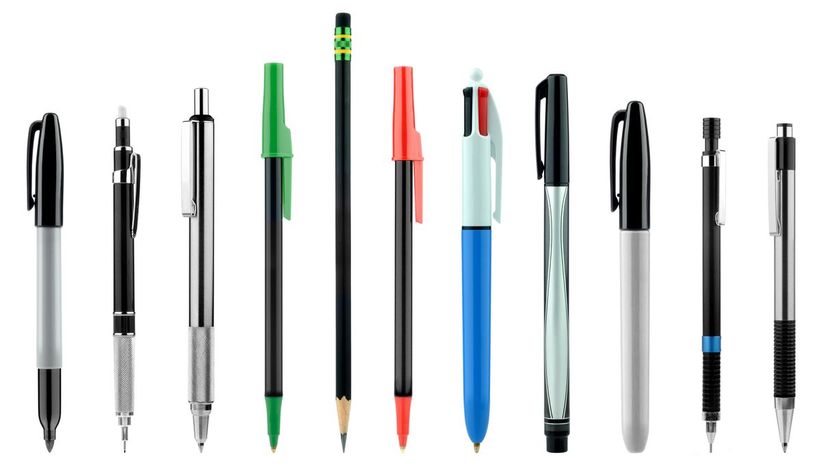
Surprisingly, "une gomme" isn't actually gum, but an eraser. You'll also be surprised to hear that "un crayon" is a pencil. A highlighter and pen denote "un surligneur" and "un stylo," respectively.
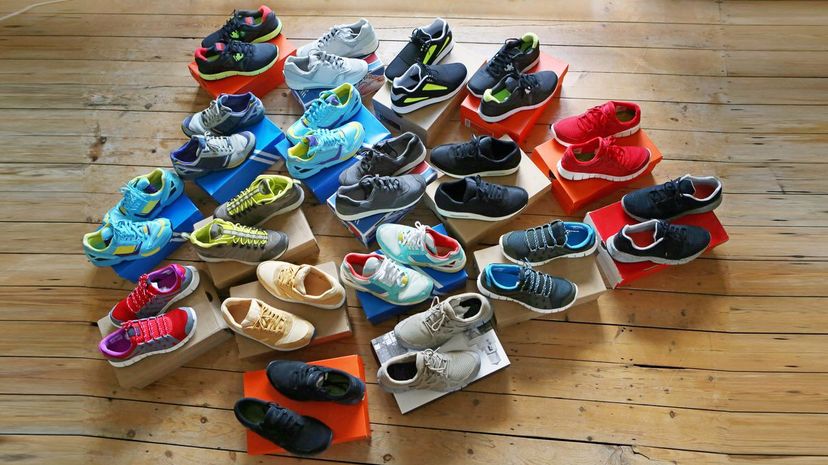
Wearing cauliflower on your feet probably isn't the best idea. But sandals, sneakers and boots (aka options 1, 2 and 3) are better choices. The word "fleur" means "flower" in French, hence the second part in "chou-fleur."
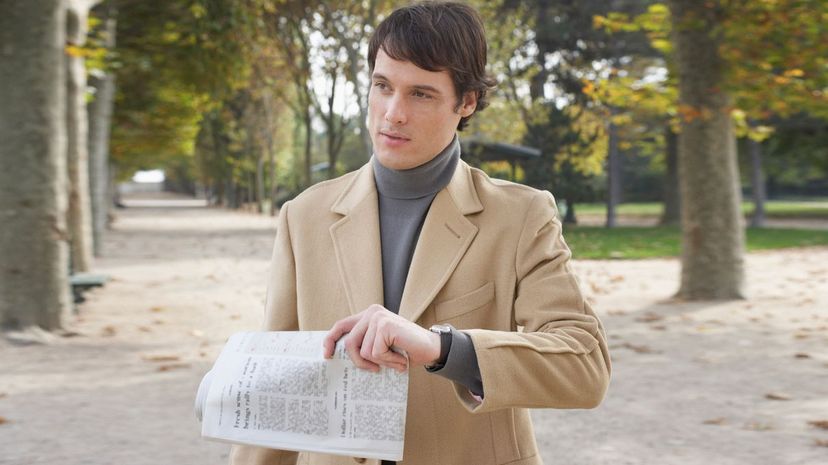
Fun fact: the French equivalent of "happy birthday" is "bonne fête," or you can also say "joyeux anniversaire." You can expect "un gâteau" regardless of the language, but "un pizza," "une lasagne" and "une tarte" aren't guaranteed.
Advertisement
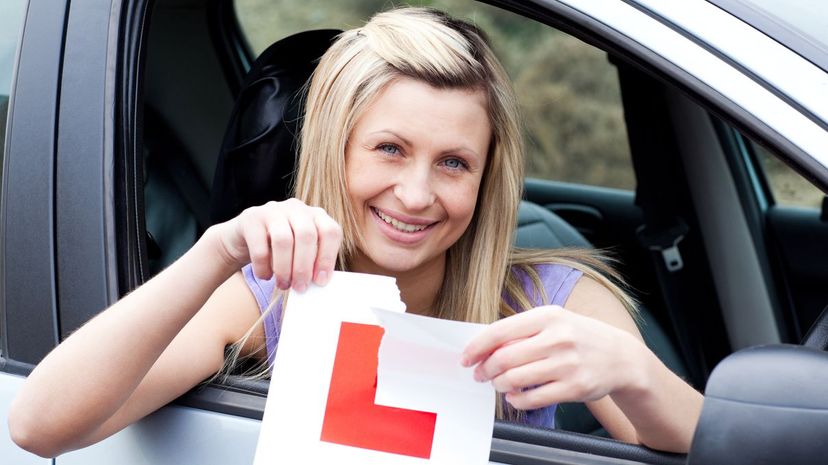
While roses are often red, the color "rose" refers to pink. You'd definitely go through a "vert" light, but might be a bit more cautious when you see that it's "jaune." If you see "rouge" and "bleu," you're about to get pulled over.
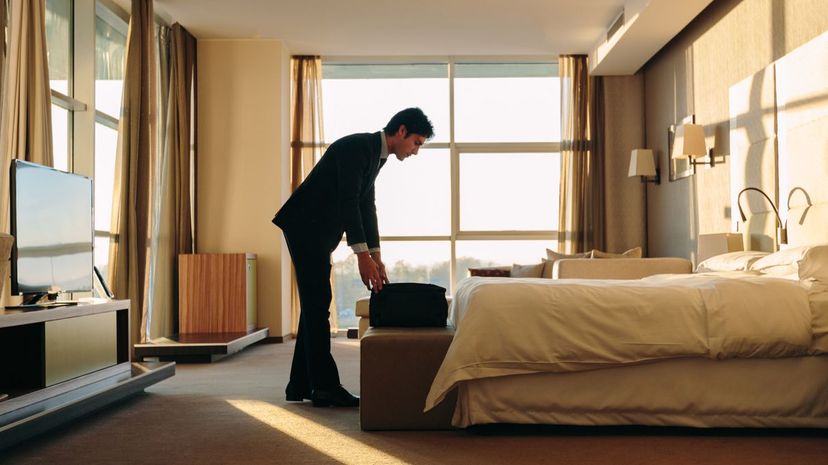
You might "se tortiller," or squirm, upon seeing a messy room, but might feel compelled to "embrasser," or hug, the room service once it's clean. You may even "donner" — give — a really good tip after.

The idea of going to an optometrist to get your "nez" and "menton" — nose and chin — checked doesn't seem right. You're more likely to end up at an eyebrow bar if you need your "sourcils" worked on.
Advertisement
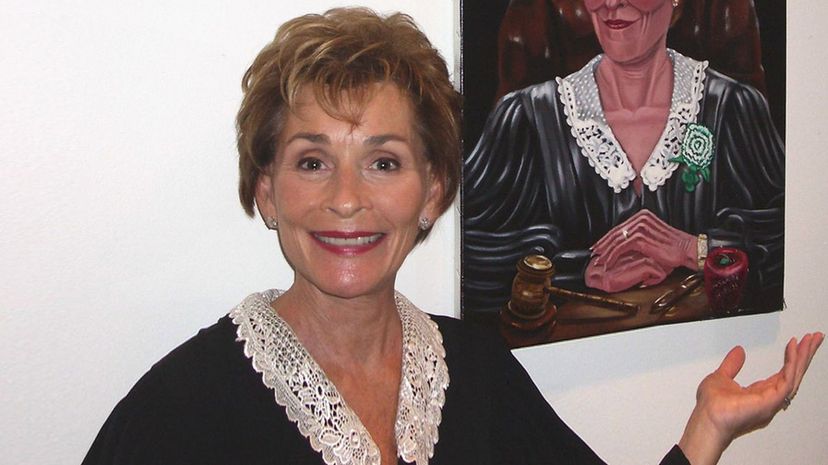
A trial is technically a legal process, so the word "procès" is fitting. The "procès" occurs in a court — or "cour." "Une épreuve" is a type of trial, but more in the sense of an attempt or trial run.
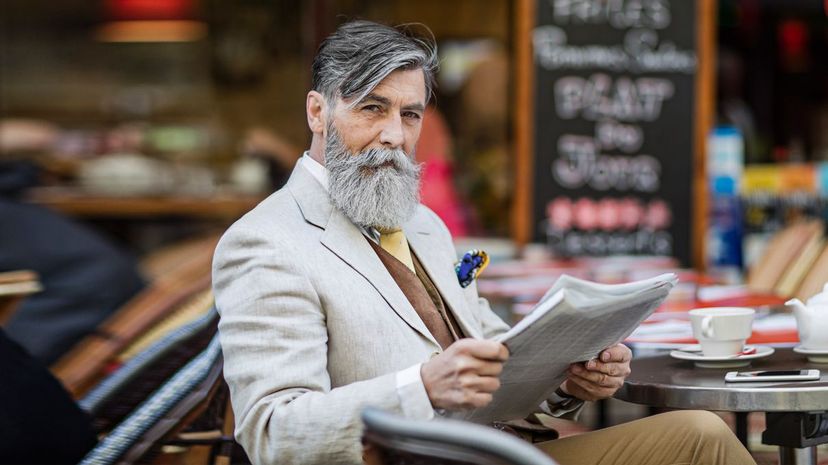
If referring to youth as a group of people, you'd say "les jeunes." If you're talking about youth as a concept, say "la jeunesse." The second option, "ancien," does mean "ancient," but it's frequently used as "former," like "mon ancien professeur."
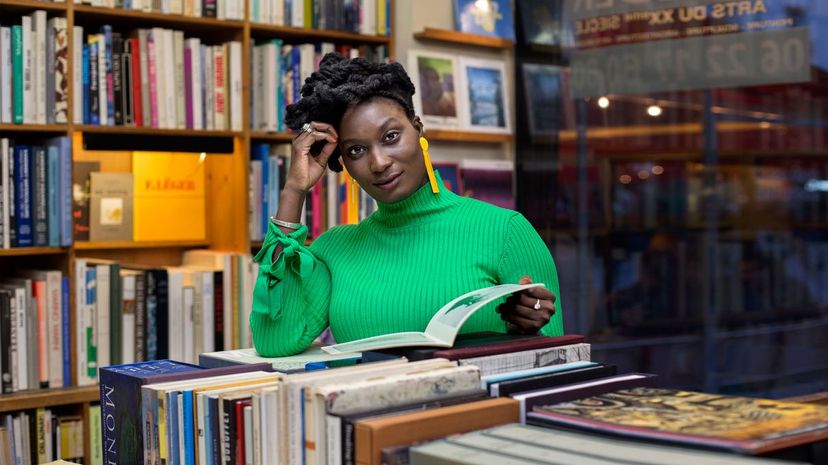
More specifically, the word for "T-shirt" in French and English is identical. Interestingly, the word for "shorts" is also the same. But a hat is "un chapeau" and a sweater is "un chandail."
Advertisement
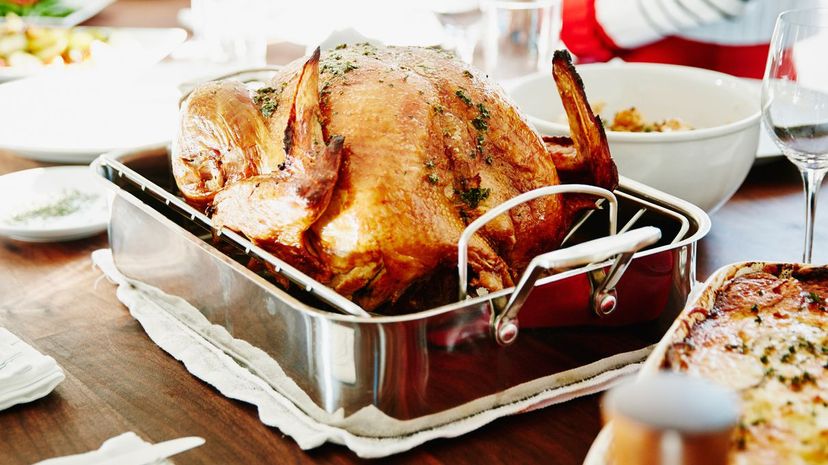
Fun fact: the word for "Turkey," the country, is "Turquie." All these options are some variation of a bird — a chicken, hen and rooster, respectively — but do we see them stealing the show at Thanksgiving? Exactly.

"Mécontentement" looks like an adverb but it's indeed a noun, meaning "dissatisfaction," something you're probably not experiencing if you answered this correctly. A "montaigne" is a mountain and "l'arc-en-ciel" is a rainbow.
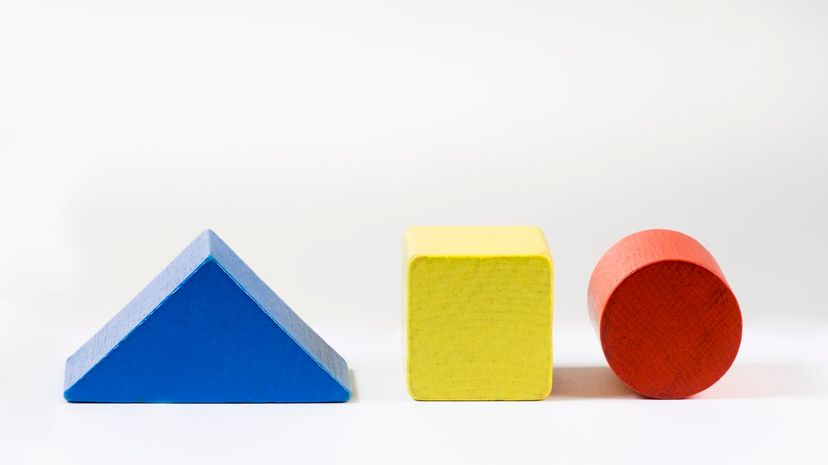
The words for shapes look almost identical in both English and French — a rectangle is "un rectangle," a circle is "un cercle" and a triangle is "un triangle," just to name a few — but this is a case where there's no resemblance.
Advertisement
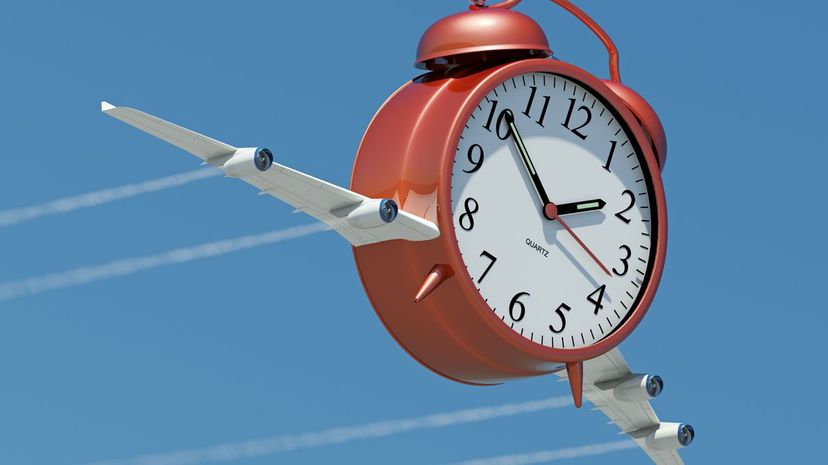
French months are not capitalized unless they start the sentence. This rule echoes Spanish grammar, and the second option just so happens to be the word for "August" in Spanish. The third answer is a name, and "aux" is a preposition that precedes plural nouns.
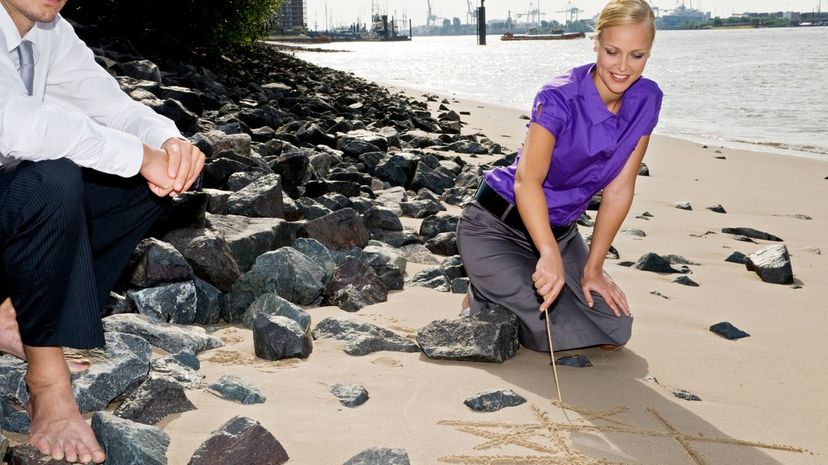
Tic-tac-eyelash, or "un cil," just doesn't have the same ring to it, and neither does tic-tac-eyebrow, or "un sourcil." "Un pied" is close to the toe but not quite right — it's a foot.
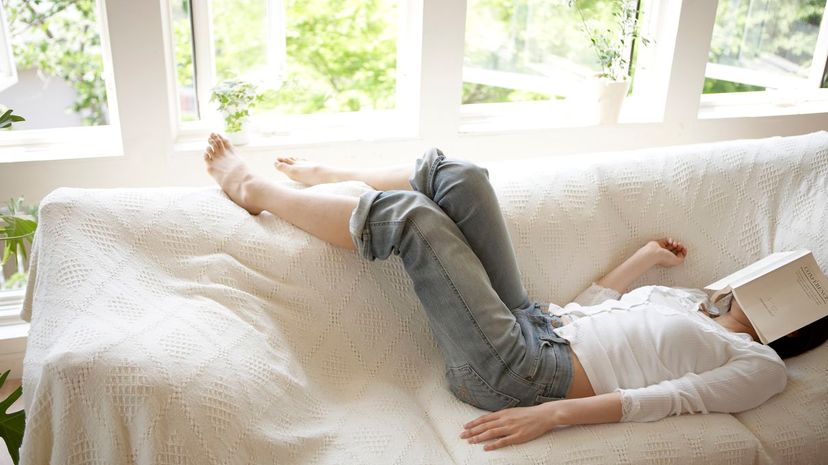
If you have time for a lazy day, some would say you're lucky, or "chanceux" (if you're a girl, you'd be "chanceuse.") Some would undoubtedly be "jaloux" (jealous) and others would simply be netural, or "neutre."
Advertisement
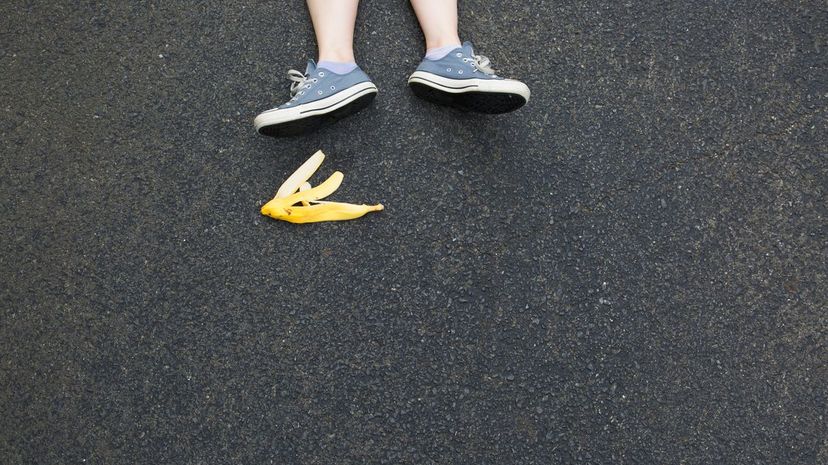
When English speakers describe something awkward or clumsy, they often use the term "gauche," which means "left" in French, and this answer essentially indicates the same thing: "mal" is "bad" and "droit" is "right," signifying "not right" ... or left!